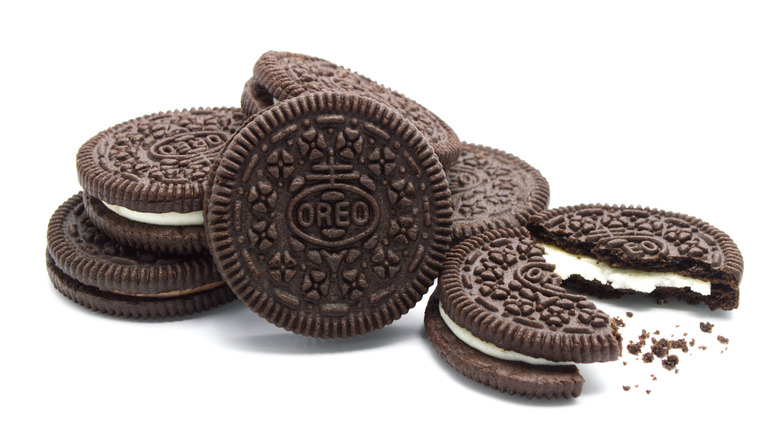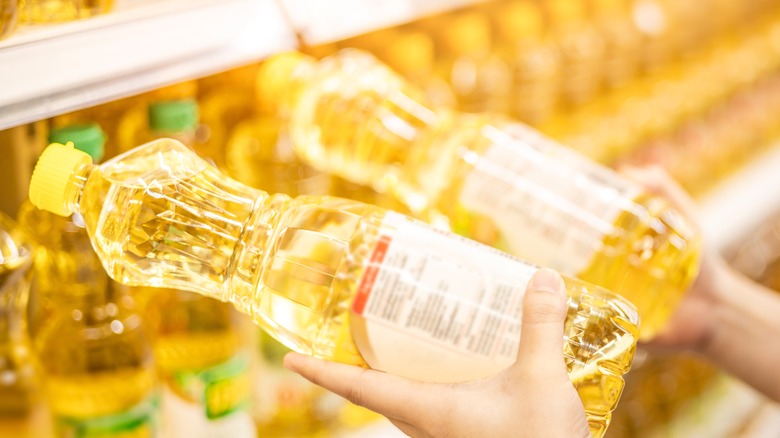How Indonesia's Palm Oil Ban May Affect Your Favorite Snack Foods
Inflation is coming for your favorite snacks.
Indonesia, the world's largest palm oil producer, just banned exports of its edible oil, blaming the Russian war in Ukraine. The shortage of sunflower oil, which is exported from the war-torn country, is creating ripple effects through the edible oil market, raising prices and causing shortages. The Indonesian government called for the ban because of a shortage of cooking oil in their country, according to the Wall Street Journal. Indonesia is responsible for 60% of palm oil exports.
Palm oil's versatility lends itself to all kinds of uses, from processed food to beauty products. Because it's odorless and tasteless, it's the perfect oil to add to snacks. Add to that its long shelf life, and the oil is a boon for the packaged food industry (via World Wildlife Federation).
Fortune reports that palm oil is found in almost 50% of the packaged goods sold in the U.S. Products like Doritos, Nutella, and Oreos use palm oil. Further, because it doesn't contain trans fats, it's considered a healthier alternative to partially hydrogenated oils like vegetable oil and shortening. While these inexpensive oils share palm oil's versatility, they wreak havoc on our health (via Healthline), raising your bad cholesterol and lowering your good cholesterol. This puts you at risk for heart disease and stroke, according to the American Heart Association.
Packaged goods manufacturers will have to find alternative oils
Confectionary Production points out that globally, edible oil prices have risen over 50% in the past six months, and not only because of the conflict in Ukraine. Argentina, the world's third-largest oil exporter of groundnut, sunflower, and soybean oil, has been suffering both a labor shortage and a drought. The Guardian reports that drought has also created smaller harvests of soya beans in Brazil and Paraguay. Extreme heat took a toll on Canada's canola crops, causing a shortage in rapeseed. With the addition of this palm oil ban, prices are expected to spike even further.
The Guardian notes the U.K. has already put rations on cooking oil and says that packaged goods manufacturers are likely going to reformulate their products to use alternative oils. Food Dive reports that Mondelēz International's CFO Luca Zaramella said that the ban is "not a material issue at this point in time" during an earnings call the day before the full ban was announced.
Edible oils supplier Archer Daniels Midland's CEO said they were ready to help companies with reformulations, according to Food Dive. But John Quelch, Dean of the University of Miami Herbert Business School, told Cheddar News that replacing palm oil in packaged food goods is not that simple. He warns that shortages of your favorite snacks are likely in the coming months.

